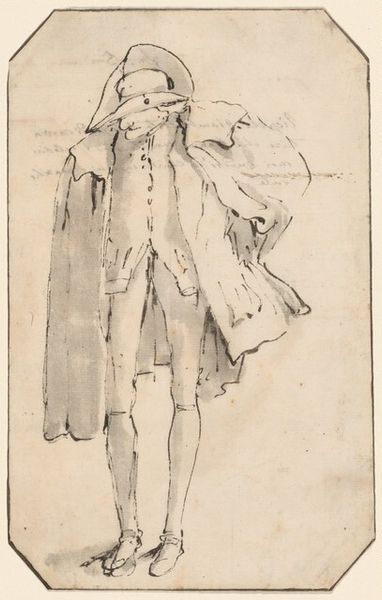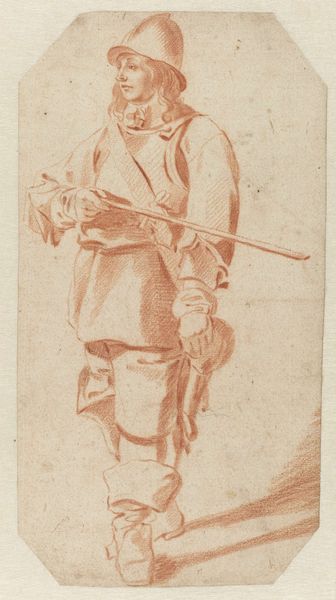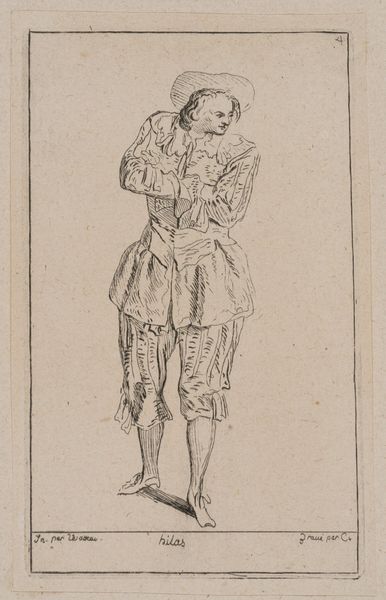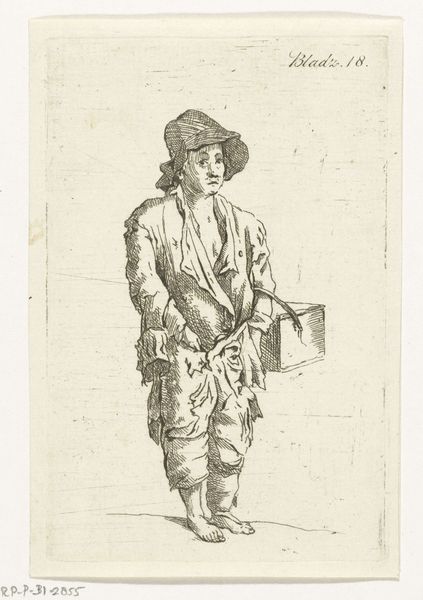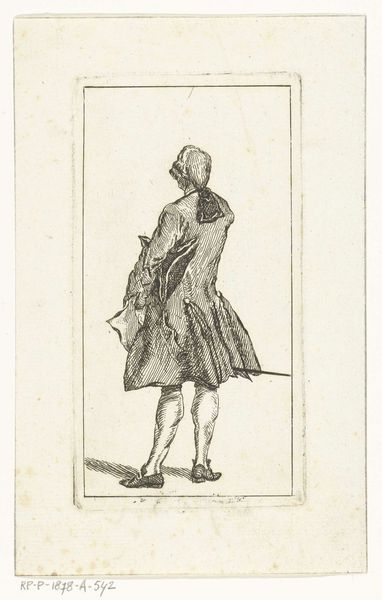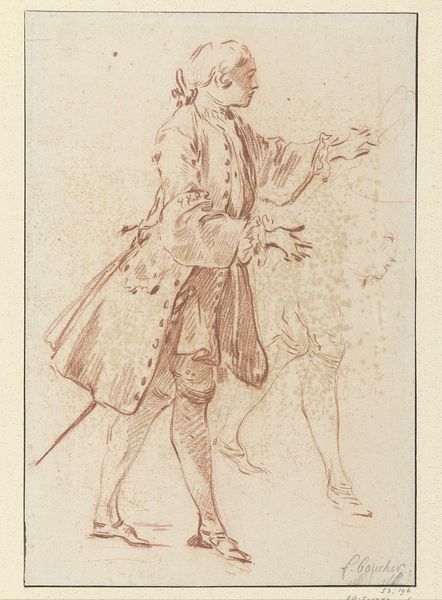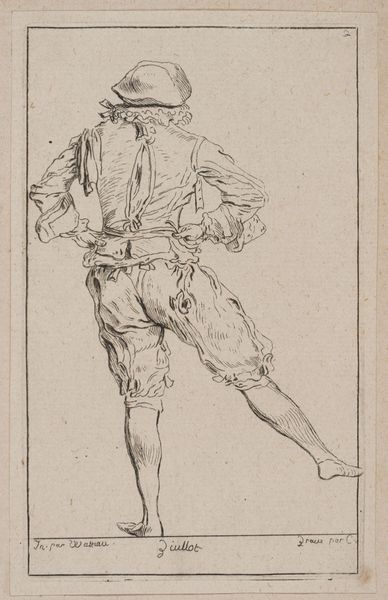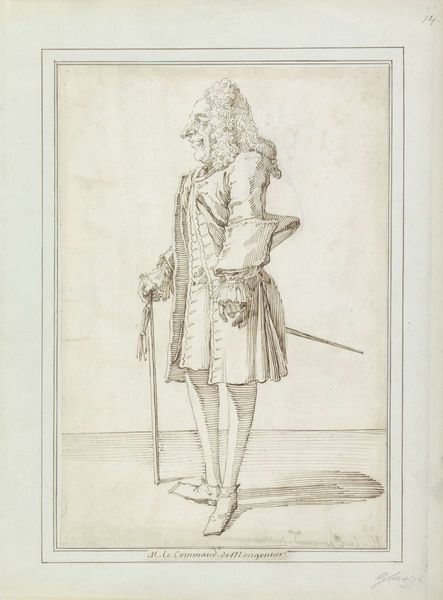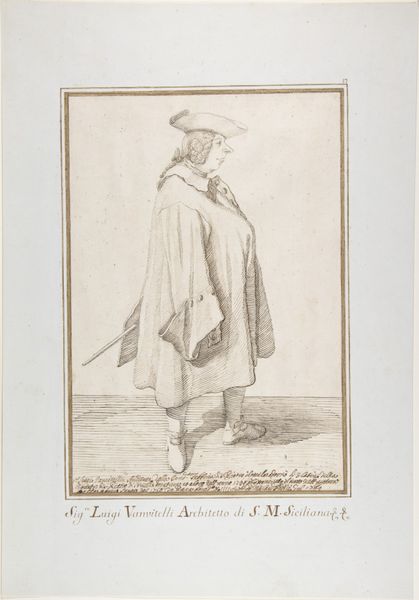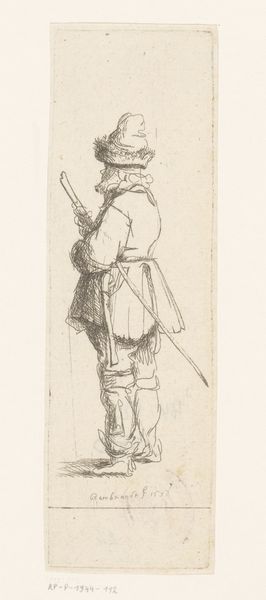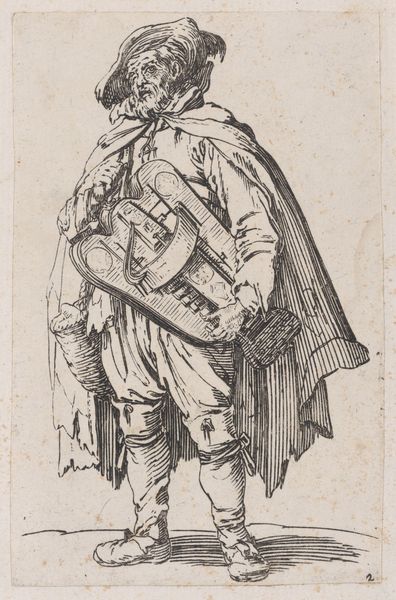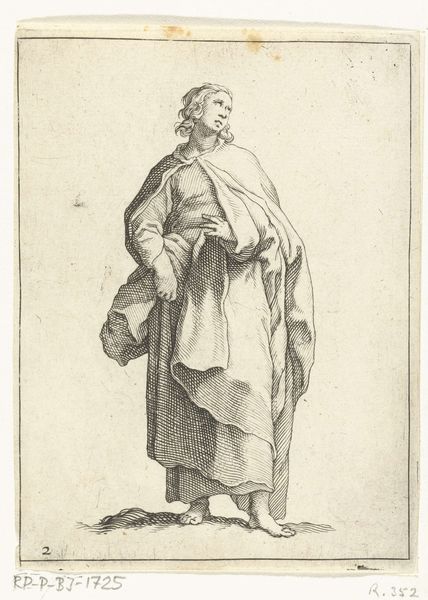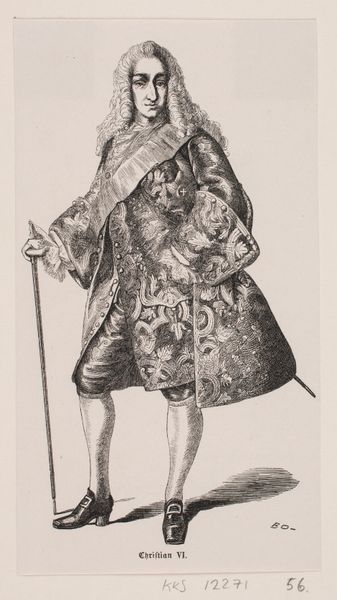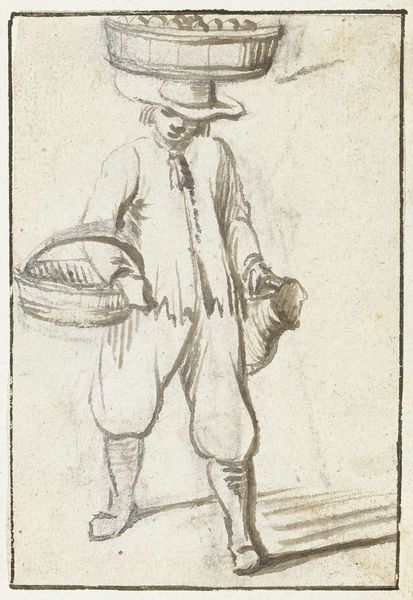
Heer met degen, leunend op zijn wandelstok, van voren gezien 1685
0:00
0:00
sebastienleclerci
Rijksmuseum
drawing, print, pen
#
portrait
#
drawing
#
imaginative character sketch
#
light pencil work
#
quirky sketch
#
baroque
# print
#
cartoon sketch
#
figuration
#
personal sketchbook
#
ink drawing experimentation
#
pen-ink sketch
#
sketchbook drawing
#
pen
#
storyboard and sketchbook work
#
sketchbook art
Dimensions: height 149 mm, width 97 mm
Copyright: Rijks Museum: Open Domain
Curator: This elegant, almost whimsical sketch is titled "Heer met degen, leunend op zijn wandelstok, van voren gezien," created in 1685 by Sébastien Leclerc I. Editor: I must say, the overall effect strikes me as playfully artificial. The figure’s pose, the elaborate costume, even the confident gaze…it feels like a carefully constructed performance. Curator: Indeed. The figure's attire, note the precise arrangements of lines that suggest layers and texture— speaks to an acute awareness of social symbolism. This isn’t simply clothing; it is a constructed identity, a statement of status meticulously rendered in pen. Editor: I agree, but I wonder, too, about the sword. It’s almost secondary, isn't it? More of a fashion accessory than an instrument of power. Doesn’t it serve to enforce his class identity more than any literal use? Curator: It certainly reinforces it, although Leclerc, trained as a military engineer and printmaker, undoubtedly was also focused on precision in his renderings. Consider the carefully etched details of the face, offset by the relatively sparse strokes defining his coat. The figure becomes an intricate play of form and depth. Editor: I’m intrigued by the almost casual swagger, his crossed legs and slight lean – is this perhaps a conscious evocation of Baroque theatre, or a fashionable posture for a man of that era? The walking stick almost mimics a stage prop in his relaxed but assertive gesture. Curator: Possibly both. There are several theories connecting costume, attitude and posture. Leclerc captures something of the period's self-conscious artifice, but it does beg questions on cultural mannerisms. Editor: And it works as a kind of pre-photographic ‘snapshot,’ right? We are offered insight not only into what this figure might have looked like, but also to a cultural memory regarding stance and comportment of this cultural figure? Curator: Precisely. This rendering also encourages us to appreciate the materiality of line, and how that, in itself, carries meaning. A study in artifice and self-awareness made manifest through deliberate mark-making. Editor: This glimpse into a singular presence makes me reflect on the enduring allure and performance that informs identity across generations.
Comments
No comments
Be the first to comment and join the conversation on the ultimate creative platform.
